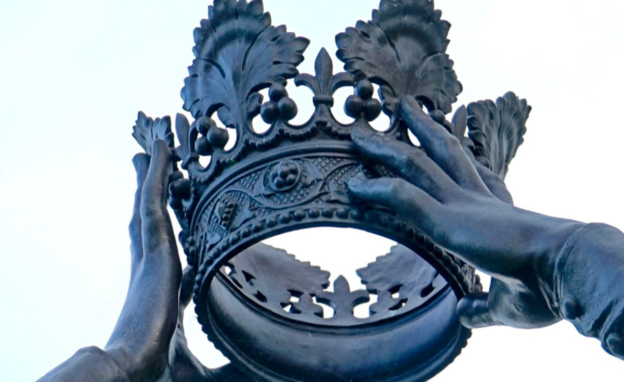We live in an age of idealised leadership. We like our leaders to show certain characteristics; successful, charismatic, engaging, with a hint of the common touch. Youth is also seen as a distinct benefit, although depending on the situation the affable older man might still fit the bill. Competence is an optional extra. I also concede I am being slightly cynical. Slightly.
Israel in Samuel’s day were also looking for their own type of king, not the divine leadership which God provided. They wanted a king like the nations, and God granted them their request to teach them a lesson. But it was also a means of advancing his salvation plan. In Chapter 9 and 10 of 1 Samuel we are introduced to The People’s Prince, Saul, and see how God’s hand of providence leads Saul to a kingship he found when all he was looking for were some lost donkeys.
We are introduced to Saul by way of his lineage, which was not particularly distinguished (none are mentioned previously in the Bible) though Saul’s father had amassed substantial wealth (v.1). Saul was from the tribe of Benjamin, which had a notorious past (Judges 19-21) but was usefully sat in the middle of Israel so could act as a negotiator between the northern and southern tribes.
Most important is the description of Saul. He was “a handsome young man. There was not a man among the people of Israel more handsome than he. From his shoulders upward he was taller than any of the people” (v.2). He was exactly the type of man that worldly Israel was looking for as king.
What follows is a providential description of how God caused Saul and Samuel to meet. Saul’s father lost some donkeys and sent Saul and a servant to find them (vv.3-5). Instead of returning empty-handed, Saul’s servant convinced Saul to visit a man of God for help, and providentially he had the right money to pay for services rendered (vv.6-13). Saul’s servant seems a better leader than Saul.
As they entered the city, they came upon Samuel (v.14)! Samuel knew that God was sending him a man from Benjamin to anoint as prince over Israel, and as Saul entered God pointed him out to Samuel (vv.15-17). However, Saul did not seem to recognise Samuel (v.18), not exactly a ringing endorsement of his spiritual life.
After identifying himself to Saul, Samuel told him not to worry about the donkeys which had been found (vv.19-20), compared to Saul himself with the characteristics which made him desirable to the elders of Israel (v.20). Saul was completely befuddled by Samuel’s statement of him, especially given his origins (v.21).
What then followed was Samuel wining and dining Saul; receiving a place of honour at a banquet, the best cuts, and a comfortable place to sleep (vv.22-26).
In the morning, when Saul went to leave, Samuel told his servant to go on ahead so he could speak privately with Saul (vv.26-7).
At that point, Samuel anointed Saul with oil to recognise God’s anointing of him as leader, and kissed him to recognise kingly submission (10:1). To demonstrate that Samuel was not mad, he provided specific signs which demonstrated God’s providence (vv.2-7).
The third of these signs was that Saul would prophesy “and be turned into another man” (v.7) as God’s anointed one (messiah) to deliver Israel from the Philistines. When this happened, it came as such a surprise to Saul’s peers, who knew his family were not known prophets, to note the occasion (vv.8-13). “Is not Saul among the prophets” became a “wonders never cease!” idiom.
Yet despite all these events, and Saul’s prophetic utterances, he did not demonstrate a changed heart to do God’s will. Instead of acknowledging his anointing, he refused to tell his uncle anything other than that he had been to Samuel and been told the donkeys were found (vv.14-16). Instead, he seemed to slip back into his old life and ways, as if nothing had changed.
Saul was the ideal worldly leader. Handsome, tall, affable. Yet not a very good leader. He could not even find his father’s donkeys, let alone care for the flock. He was swayed by his servant’s opinions. He was the type of leader the world desires, but not one that seeks God.
While managerial types and CEOs might make attractive worldly leaders, they do not necessarily make good spiritual leaders. The world might like such, especially with a dash of youth, but the church requires godly, spiritual leadership by mature Christians who can teach. A bit of life experience does no harm either.
We can be swayed by the worldly ideal shown by Saul, or seek the divine example of Jesus. Jesus was the opposite of Saul in many ways, yet it was Jesus who defeated our enemies and whom God anointed eternal king. It is to Jesus that we should ultimately submit, serve, and follow, not worldly leaders who ultimately fail to lead us in paths of righteousness.


